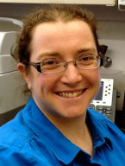Genetic ancestry correlates with somatic differences in a real-world clinical cancer sequencing cohort Journal Article
| Authors: | Arora, K.; Tran, T. N.; Kemel, Y.; Mehine, M.; Liu, Y. L.; Nandakumar, S.; Smith, S. A.; Brannon, A. R.; Ostrovnaya, I.; Stopsack, K. H.; Razavi, P.; Safonov, A.; Rizvi, H. A.; Hellmann, M. D.; Vijai, J.; Reynolds, T. C.; Fagin, J. A.; Carrot-Zhang, J.; Offit, K.; Solit, D. B.; Ladanyi, M.; Schultz, N.; Zehir, A.; Brown, C. L.; Stadler, Z. K.; Chakravarty, D.; Bandlamudi, C.; Berger, M. F. |
| Article Title: | Genetic ancestry correlates with somatic differences in a real-world clinical cancer sequencing cohort |
| Abstract: | Accurate ancestry inference is critical for identifying genetic contributors of cancer disparities among populations. Although methods to infer genetic ancestry have historically relied upon genome-wide markers, the adaptation to targeted clinical sequencing panels presents an opportunity to incorporate ancestry inference into routine diagnostic workflows. We show that global ancestral contributions and admixture of continental populations can be quantitatively inferred using markers captured by the MSK-IMPACT clinical panel. In a pan-cancer cohort of 45,157 patients, we observed differences by ancestry in the frequency of somatic alterations, recapitulating known associations and revealing novel associations. Despite the comparable overall prevalence of driver alterations by ancestry group, the proportion of patients with clinically actionable alterations was lower for African (30%) compared with European (33%) ancestry. Although this result is largely explained by population-specific cancer subtype differences, it reveals an inequity in the degree to which different populations are served by existing precision oncology interventions. SIGNIFICANCE: We performed a comprehensive analysis of ancestral associations with somatic mutations in a real-world pan-cancer cohort, including >5,000 non-European individuals. Using an FDA-authorized tumor sequencing panel and an FDA-recognized oncology knowledge base, we detected differences in the prevalence of clinically actionable alterations, potentially contributing to health care disparities affecting underrepresented populations. © 2022 American Association for Cancer Research. |
| Keywords: | adult; major clinical study; single nucleotide polymorphism; somatic mutation; polymorphism, single nucleotide; neoplasm; neoplasms; prevalence; cohort analysis; genetics, population; caucasian; personalized medicine; health care disparity; knowledge base; population genetics; whites; ancestry group; humans; human; male; female; article; precision medicine |
| Journal Title: | Cancer Discovery |
| Volume: | 12 |
| Issue: | 11 |
| ISSN: | 2159-8274 |
| Publisher: | American Association for Cancer Research |
| Date Published: | 2022-11-01 |
| Start Page: | 2552 |
| End Page: | 2565 |
| Language: | English |
| DOI: | 10.1158/2159-8290.Cd-22-0312 |
| PUBMED: | 36048199 |
| PROVIDER: | scopus |
| PMCID: | PMC9633436 |
| DOI/URL: | |
| Notes: | Article -- MSK author Vijai Joseph's names are reversed on the original publication -- Export Date: 1 December 2022 -- Source: Scopus |
Altmetric
Citation Impact
BMJ Impact Analytics
MSK Authors
-
 181
181Fagin -
 201
201Ostrovnaya -
 792
792Offit -
 167
167Brown -
 785
785Solit -
 398
398Stadler -
 1336
1336Ladanyi -
 346
346Zehir -
 88
88Chakravarty -
 214
214Joseph -
 779
779Berger -
 412
412Hellmann -
 500
500Schultz -
 103
103Brannon -
 108
108Kemel -
 7
7Reynolds -
 184
184Razavi -
 123
123Rizvi -
 110
110Liu -
 70
70Stopsack -
 82
82Bandlamudi -
 71
71Nandakumar -
 15
15Smith -
 36
36Safonov -
 28
28Arora -
 10
10Tran -
 19
19Carrot-Zhang -
 17
17Mehine
Related MSK Work



